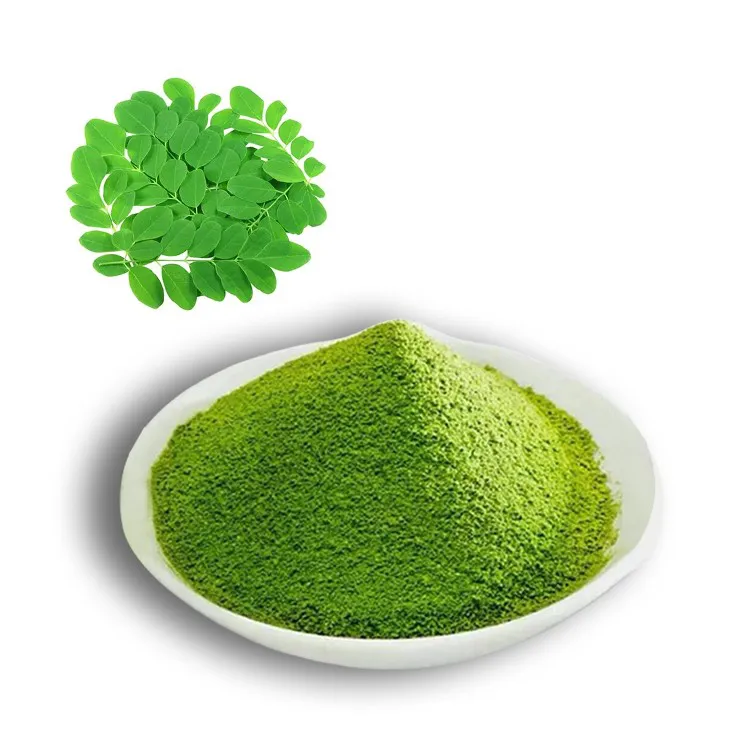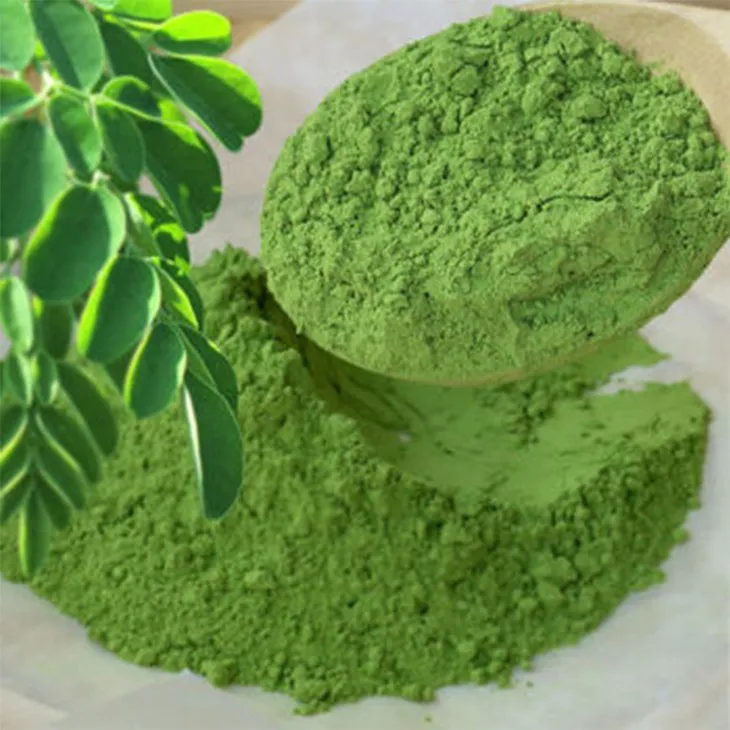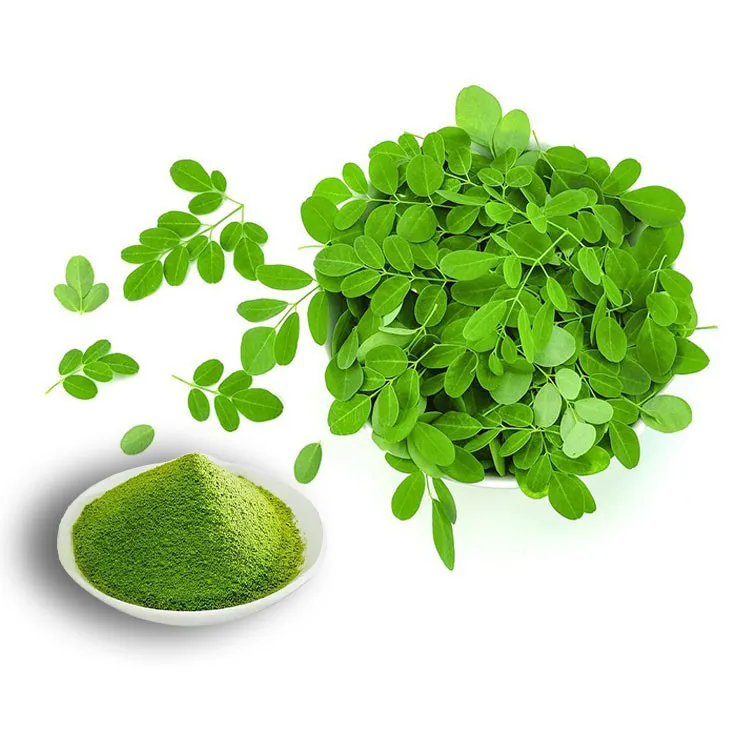- 0086-571-85302990
- sales@greenskybio.com
How do top - level moringa powder manufacturers make use of new projects?
2024-12-22

1. Introduction
In the highly competitive Moringa powder industry, top - level manufacturers are constantly seeking ways to stand out and maintain their leading positions. One of the most effective strategies they employ is making use of new projects. These new projects not only help them to improve their products but also enhance their brand image and contribute to the overall development of the industry and related communities.

2. Technological Upgrade Projects
2.1 Improving Processing Techniques
Advanced drying techniques are a key focus in technological upgrade projects. Traditional drying methods may cause some nutrient loss in moringa leaves during the production of Moringa powder. However, top - level manufacturers are now investing in new drying technologies such as freeze - drying. Freeze - drying helps to preserve the maximum amount of nutrients in the moringa leaves, ensuring that the final Moringa powder has a higher nutritional value.
Another aspect is the improvement of extraction methods. Manufacturers are researching and implementing more efficient extraction techniques to obtain the active compounds in moringa. For example, they are using supercritical fluid extraction, which can selectively extract the desired components without the use of harsh solvents, resulting in a purer and more effective moringa powder.
2.2 Quality Control and Standardization
With new technological projects, manufacturers can enhance their quality control systems. They are able to implement more accurate and rapid testing methods for contaminants such as heavy metals and pesticides. This ensures that the moringa powder they produce meets the highest safety and quality standards.
Standardization is also an important part of technological upgrade. By establishing strict production standards, manufacturers can ensure the consistency of their moringa powder products. This includes standardizing the particle size, color, and nutrient content of the powder, which is crucial for building customer trust and loyalty.

3. Community - based Projects
3.1 Sustainable Cultivation with Local Communities
Top - level moringa powder manufacturers recognize the importance of sustainable cultivation. They are increasingly collaborating with local communities for moringa cultivation. Through these projects, they can provide training and resources to local farmers on sustainable farming practices. For instance, they teach farmers about proper irrigation techniques, the use of organic fertilizers, and pest management without excessive use of chemicals.
This cooperation also helps to ensure a stable supply of high - quality raw materials. By working closely with local communities, manufacturers can monitor the cultivation process more effectively, ensuring that the moringa leaves are grown in an optimal environment. This, in turn, results in better - quality moringa powder.
3.2 Community Development and Empowerment
Community - based projects are not only about raw material supply but also about community development. Manufacturers are involved in initiatives that improve the living standards of local communities. They may invest in infrastructure projects such as building roads or providing clean water sources in the areas where moringa is cultivated.
Additionally, they offer educational opportunities to the local population. This can include providing
scholarships for children in farming families or training programs for adults to improve their agricultural
skills or develop other employable skills. By empowering the local community, manufacturers can build a more
positive relationship with them, which is beneficial for the long - term success of their moringa powder
business.

4. Brand - building Projects
4.1 Unique Packaging Design
In brand - building projects, unique packaging design plays a significant role. Manufacturers are investing in creating packaging that not only protects the moringa powder but also attracts consumers. They are using innovative materials for packaging, such as biodegradable or recyclable materials, which align with the growing consumer preference for environmentally - friendly products.
The design of the packaging also focuses on highlighting the key features of the moringa powder. This may include vivid images of moringa leaves, clear nutritional information, and product certifications. A well - designed package can make the product stand out on the store shelf and influence consumers' purchasing decisions.
4.2 Social Responsibility and Brand Image
Top - level moringa powder manufacturers are actively involved in social responsibility activities as part of their brand - building projects. They may support environmental conservation projects related to moringa cultivation, such as reforestation efforts in areas where moringa is grown.
They also engage in initiatives to promote healthy living. For example, they sponsor health awareness campaigns that educate the public about the nutritional benefits of moringa powder. These social responsibility activities help to enhance the brand's reputation and create a positive brand image in the eyes of consumers.
4.3 Building Customer Loyalty
Brand - building projects aim to build long - term customer loyalty. Manufacturers are implementing loyalty programs, such as offering discounts to repeat customers or providing exclusive access to new product launches. They also focus on providing excellent customer service, including prompt responses to customer inquiries and handling of complaints.
By creating a strong brand identity through these various brand - building projects, manufacturers can differentiate their moringa powder products from competitors and encourage customers to choose their products over and over again.
5. Conclusion
Top - level moringa powder manufacturers are making use of new projects in multiple ways. Technological upgrade projects improve product quality and standardization, community - based projects ensure sustainable raw material supply and community development, and brand - building projects enhance brand image and customer loyalty. These new projects are essential for the long - term success and growth of moringa powder manufacturers in a competitive market.
FAQ:
Q1: What are the key aspects of technological upgrade projects in moringa powder manufacturing?
Technological upgrade projects in moringa powder manufacturing mainly focus on several key aspects. Firstly, the use of advanced extraction and drying techniques. For example, some manufacturers are adopting low - temperature drying methods which can better preserve the heat - sensitive nutrients in moringa powder. Secondly, improved filtration systems are used to remove impurities more effectively, thus enhancing the purity of the powder. Also, new machinery might be introduced to ensure more precise processing, which can help in maintaining the consistent quality of the moringa powder.
Q2: How can community - based projects ensure the quality of moringa raw materials?
Community - based projects can ensure the quality of moringa raw materials in multiple ways. Manufacturers can provide training to local farmers on proper cultivation techniques. This includes teaching them about the optimal time for sowing, watering schedules, and pest control methods. Also, by establishing quality control standards at the community level, they can monitor the growth process closely. For instance, setting limits on the use of pesticides and fertilizers to ensure that the moringa plants grow in a healthy and natural environment, which in turn results in high - quality raw materials.
Q3: What are the effective ways of brand - building in the moringa powder industry?
In the moringa powder industry, brand - building can be achieved through various effective ways. One way is through unique packaging design. Eye - catching and informative packaging can attract consumers' attention on the store shelves. For example, using eco - friendly packaging materials can also appeal to environmentally - conscious consumers. Another important aspect is engaging in social responsibility activities. This could include initiatives like supporting local communities where moringa is cultivated, or promoting sustainable farming practices. Additionally, creating a strong brand identity through consistent marketing messages and product positioning can help build long - term loyalty among customers.
Q4: How do top - level moringa powder manufacturers measure the success of their new projects?
Top - level moringa powder manufacturers measure the success of their new projects in different ways. For technological upgrade projects, they may look at the improvement in product quality, such as an increase in the purity and nutritional value of the moringa powder. This can be measured through laboratory tests. In community - based projects, success can be gauged by the growth in the quality and quantity of raw materials sourced from the community, as well as the positive impact on the local economy, such as increased employment opportunities and income levels for local farmers. For brand - building projects, the success can be measured by an increase in brand awareness, market share, and customer loyalty, which can be determined through market research and sales data analysis.
Q5: How can new projects in moringa powder manufacturing contribute to environmental sustainability?
New projects in moringa powder manufacturing can contribute to environmental sustainability in several ways. In technological upgrade projects, the adoption of energy - efficient machinery can reduce energy consumption during processing. Community - based projects can promote sustainable farming practices. For example, encouraging farmers to use organic fertilizers and natural pest control methods can reduce the environmental impact of moringa cultivation. Also, in brand - building projects, promoting products with sustainable packaging can reduce waste. Moreover, if manufacturers support reforestation initiatives in the areas where moringa is grown, it can have a positive impact on the local ecosystem.
Related literature
- Advances in Moringa Powder Processing Technology"
- "The Role of Community Engagement in Moringa Cultivation Quality"
- "Effective Brand - Building Strategies in the Nutritional Powder Industry"
- "Measuring Success in Moringa - Related New Projects"
- "Environmental Sustainability in Moringa Powder Production"
- ▶ Hesperidin
- ▶ Citrus Bioflavonoids
- ▶ Plant Extract
- ▶ lycopene
- ▶ Diosmin
- ▶ Grape seed extract
- ▶ Sea buckthorn Juice Powder
- ▶ Fruit Juice Powder
- ▶ Hops Extract
- ▶ Artichoke Extract
- ▶ Mushroom extract
- ▶ Astaxanthin
- ▶ Green Tea Extract
- ▶ Curcumin
- ▶ Horse Chestnut Extract
- ▶ Other Product
- ▶ Boswellia Serrata Extract
- ▶ Resveratrol
- ▶ Marigold Extract
- ▶ Grape Leaf Extract
- ▶ New Product
- ▶ Aminolevulinic acid
- ▶ Cranberry Extract
- ▶ Red Yeast Rice
- ▶ Red Wine Extract
-
Maca Extract
2024-12-22
-
Elderberry Extract
2024-12-22
-
Mulberry leaf Extract
2024-12-22
-
Withania Somnifera Extract
2024-12-22
-
Uridine-5'-monophosphate Disodium salt
2024-12-22
-
Curcuma Longa Extract/Turmeric extract
2024-12-22
-
Rosemary extract
2024-12-22
-
Dan Shen Root Extract/Salvia Root Extract
2024-12-22
-
Oat Straw Extract Powder
2024-12-22
-
Shikone Extract
2024-12-22





















